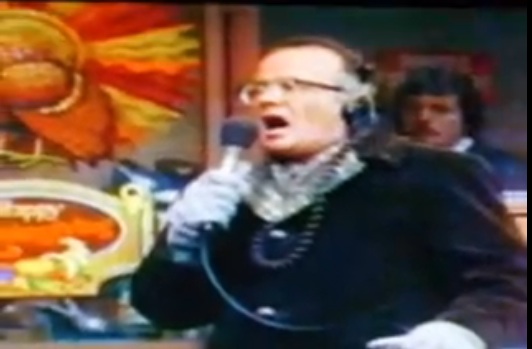Handwashing maven Michéle Samarya-Timm of the Somerset County Health Department (New Jersey, represent), writes:
Thanksgiving…time for perennial traditions in my home such as laying out the thermometers, refilling the soap dispenser in the kitchen and bath, and gathering some videos for family-friendly viewing. Amidst perennial favorites such as Miracle on 34th Street, and WKRP’s Turkeys Away classic (“as God is my witness, I thought turkeys could fly…”), I came upon a new gem (new to me, anyway) – The West Wing Season 3 episode Indians in the Lobby.
 In preparing for Thanksgiving, President Bartlet calls the Butterball Turkey Talk Line for credible food safety information. This script had the president talking about cooking the stuffing to 165 degrees F, “If I cook it inside the turkey, is there a chance I could kill my guests? I’m not saying that’s necessarily a deal-breaker,” and admitting to owning an accurate thermometer. He raved about the ease of getting food safety information via a phone call – a wonderful, glowing endorsement for the professionals at Butterball.
In preparing for Thanksgiving, President Bartlet calls the Butterball Turkey Talk Line for credible food safety information. This script had the president talking about cooking the stuffing to 165 degrees F, “If I cook it inside the turkey, is there a chance I could kill my guests? I’m not saying that’s necessarily a deal-breaker,” and admitting to owning an accurate thermometer. He raved about the ease of getting food safety information via a phone call – a wonderful, glowing endorsement for the professionals at Butterball.
This Thanksgiving episode did what it was obviously intended to do… it inspired me to call Butterball (1-800-Butterball), and pose my own food safety question. I know that the Talk Line helps individuals with proper cooking directions, but does anyone call to inquire about handwashing? Lots of food being prepared should equate to lots of hands being washed….right? And lots of questions on how to do it safely? With food and dishes migrating in and out of the kitchen sink during the flow of preparations, how does one assure clean hands without lathering up over the food?
The perky lady who answered Butterball Turkey Hotline told me she, too, was a public health professional. Since she started in 1985, she didn’t recall ever receiving a query specific to handwashing. After assuring her I wasn’t a crackpot, she connected me with specialist Alice Coffey, who was happy to chat with me about food safety. Ms. Coffey was wonderfully knowledgeable, and able to seamlessly insert food safety tidbits into the conversation. Handwashing reminders are included with the safe food handling label on the breast, back or butt of every turkey. And Butterball will advise callers to wash their hands when they call to ask about routine and off-the-wall turkey preparations. But calling just to ask about Thanksgiving handwashing? Yup, seems like I’m the first.
I’m thankful that Butterball, bites.ksu.edu, USDA and others are continuing to find ways to provide credible food safety information out to the populace. And I’m thankful this year that I still have a job in public health. But until handwashing questions, knowledge and behaviors become as much a part of our lives as the Thanksgiving turkey, I’ll also thankfully continue as a Clean Hands Pilgrim.
DP says, best part of the turkey scene from WKRP is after the turkeys crash to the ground from the helicopter, DJ Johnny Fever spins one of my favorite Credence Clearwater Revival tunes, It Came Out of the Sky.

 Arthur: This year’s theme? Surf City USA.
Arthur: This year’s theme? Surf City USA. The episode where station manager Arthur Carlson regrettably takes on the religious right came to mind when reading about the
The episode where station manager Arthur Carlson regrettably takes on the religious right came to mind when reading about the 
 The people that publish Consumer Reports came out with some “new national food safety and labeling poll" that even went by the bullshit name,
The people that publish Consumer Reports came out with some “new national food safety and labeling poll" that even went by the bullshit name, .png) I can’t even vote but, like Tom Hanks, share an interest in
I can’t even vote but, like Tom Hanks, share an interest in